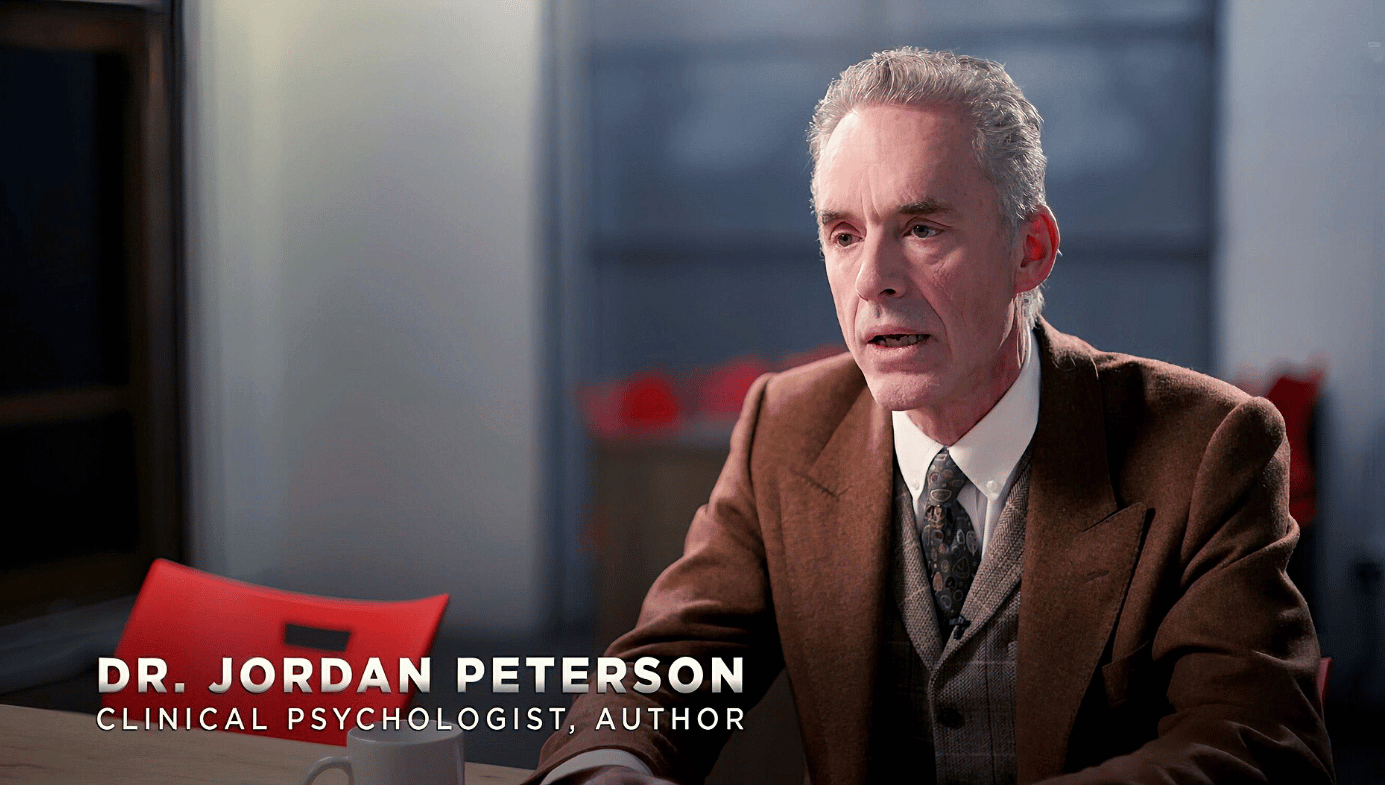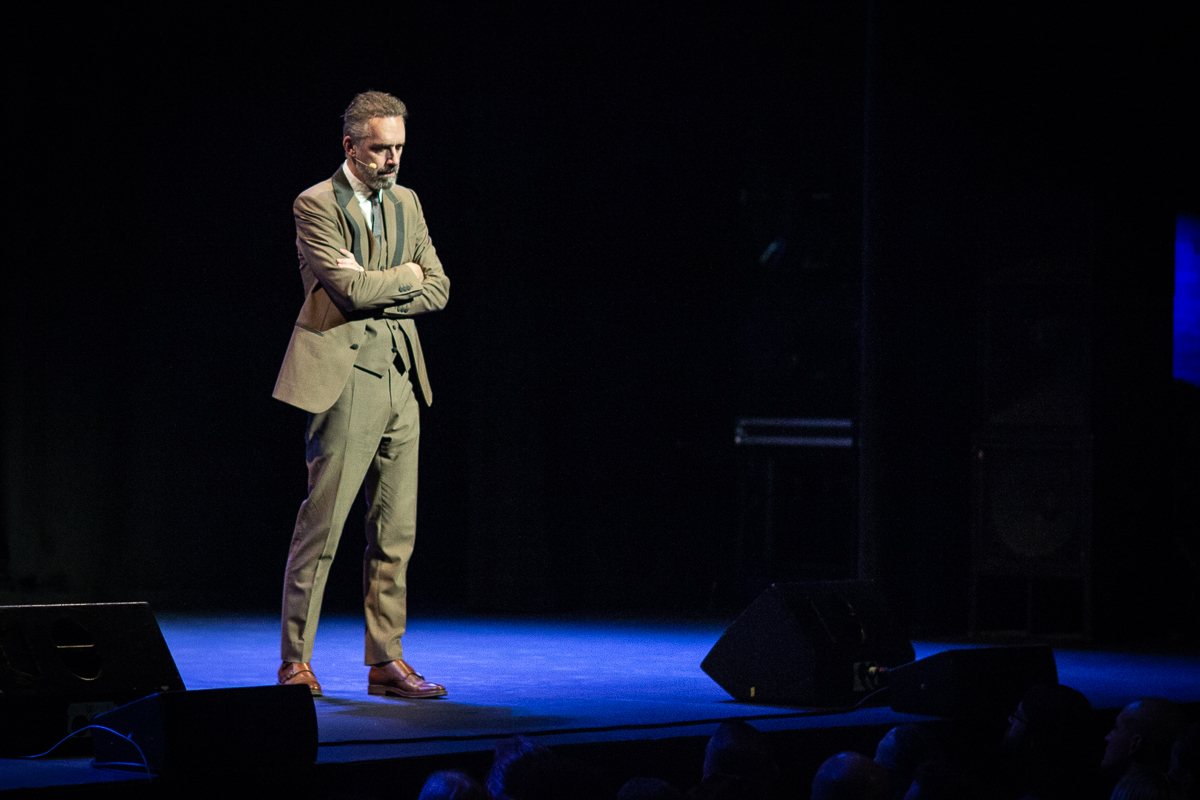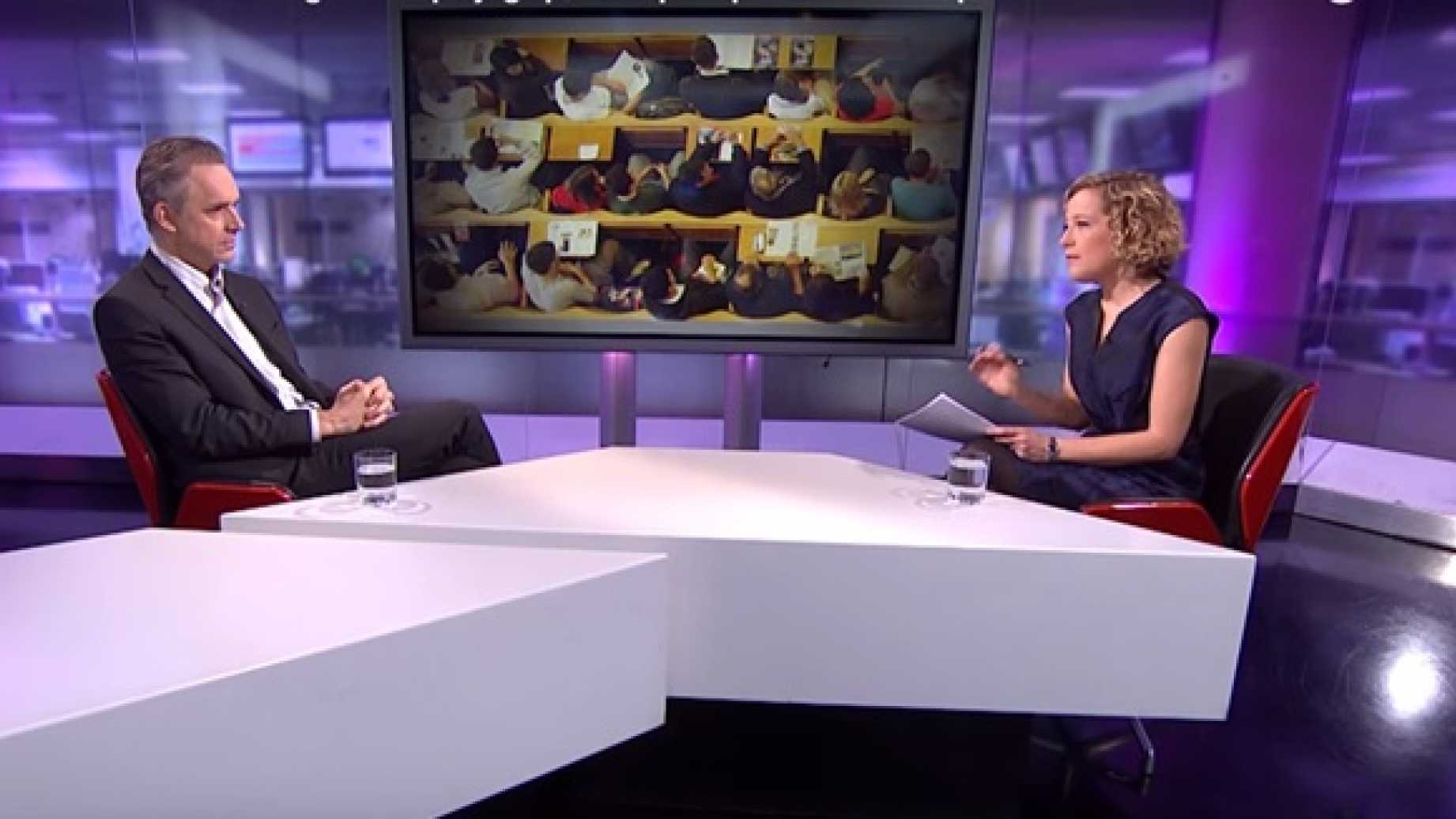Jordan Peterson
Jordan Peterson’s Last Trial
While Ontario's College of Psychologists have been censorious and discriminatory, Peterson’s online behavior is worthy of criticism.

Hippocrates cured many illnesses—and then fell ill and died. The Chaldeans predicted the deaths of many others; in due course their own hour arrived.
~Marcus Aurelius
There are a couple of ironies in the recent threat by the College of Psychologists of Ontario to revoke the occupational license of psychologist and author Jordan Peterson, unless he submits to a course of social media retraining.
The first is that Peterson no longer derives direct economic or personal benefit from the license. He has not practiced clinical psychology for several years, since around the time he skyrocketed to fame in 2016, and at this point, he is unlikely to do so again. The revocation of his mostly superfluous license could symbolize a final severance with his former private life, similar to his voluntary resignation from his professorship at the University of Toronto last year. Peterson is fighting the revocation on principle because he recognizes that words and symbols matter a great deal.
The second irony is that while the College of Psychologists’ decision was undoubtedly punitive, censorious, and discriminatory, Peterson’s online behavior is worthy of criticism.
Jordan Peterson is not a doctrinaire conservative, but a complex, nuanced thinker. But one would not guess this from his current Twitter presence. It is as full of irascible and simplistic discourse as that of many other users of Twitter, a platform which is notoriously full of anger and tendentiousness, and which is potentially addictive.
F**k you. And your sanctimony. Seriously @JustinTrudeau https://t.co/xgfIVPc0yv
— Dr Jordan B Peterson (@jordanbpeterson) February 22, 2022
Peterson has wrestled with this very issue for quite a while, and he knows that Twitter is not necessarily good for him. In a 2018 blog post addressing pushback to a somewhat poorly considered tweet, he wrote:
I honestly don’t know what to do with Twitter. It’s a very dangerous platform, and may well be doing more harm than good … I think it would be safer for me to leave Twitter and it would almost certainly better for my mental health and ease of mind and conscience. These new technologies are by no means simple and they are unforgiving … I conducted a straw poll during the Q and A after my last lecture, in Colorado Springs, asking my audience to indicate by clapping if I should continue with Twitter—mild applause—or cease using it—much louder applause. And these were definitely people who were positively predisposed to me. Should I take their advice?
In May of last year, after being criticized for saying that an obese model was not beautiful, he posted, “I recently stopped accessing Twitter for three weeks as an experiment … It was a genuine relief. I started to read & write more. I started using it again, a few days ago, and I would say that my life got worse again almost instantly.” He added, “I think the incentive structure of the platform makes it intrinsically and dangerously insane,” and concluded by saying that he was "departing once again.”
But within days, he was back to posting regularly. He was suspended shortly after for the offense of “misgendering” and reinstated in November, after Elon Musk’s takeover of the platform. He has been tweeting and retweeting regularly since, typically dozens of times a day, often quite angrily. Even when espousing political views with which many agree, there is a stridence in his tweets that is unbecoming of such an ordinarily thoughtful man. His true gifts, including those which made him a successful clinical psychologist in the first place, are obscured by hostility.
Consider, for instance, Peterson’s repeated rants against “cowardly anonymous troll demons.” Putting aside the issue that this may violate the spirit of robust free speech which he has so ardently defended in the past, Peterson is correct that online anonymity, and the resulting de-individuation, can bring out the worst in many. Why then is he feeding anonymous troll demons by giving them public attention and credence? The wisest thing would be to ignore the anonymous trolls and haters. They are simply not worth the attention of an intelligent and thoughtful man. As Winston Churchill supposedly once said, “You will never reach your destination if you stop and throw rocks at every dog that barks.”
Of course, Peterson has been besieged by hatred and calumnies, the likes of which most of us never experience. He has millions of adoring fans, too, but they don’t cancel each other out. Humans are primed to recognize threats, and bad occurrences tend to leave a stronger impression than good ones. One scurrilous attack might be more memorable and more psychologically impactful than 20 fulsome compliments.

Some of this is common for public figures, but the level of vitriol directed at Peterson has been astonishing and surely disproportionate. In addition to the thousand pinpricks of anonymous trolls, Peterson was cast as the supervillain, Red Skull, in a Captain America comic by Ta-Nehisi Coates, and as a cult leader who runs a simulation allowing unattractive men to enslave women in the film “Don’t Worry Darling.” Director Olivia Wilde called Peterson an “insane man” and a “pseudo-intellectual hero to the incel community”—incels being, in her definition, “disenfranchised, mostly white men, who believe they are entitled to sex from women.”
An impassioned Peterson responded by tearfully invoking the pain of lonely and unsuccessful men, many of whom have benefitted from his work, saying “I thought the marginalized were supposed to have a voice.” As is clear from the interview, he did not cry in self-pity, but in empathy with disgruntled men. Even so, he was mocked for having wept, the mockery suffused with an ugly undercurrent of glee, of having collected a scalp: We got him. We made the masculinity guru shed tears.
Few could withstand these constant, unjustified, and thoroughly mean-spirited attacks without retreating into a kind of belligerent tribalism and adopting an “us versus them” mentality pitting your followers against your enemies. And yet Peterson must. He has no other choice; the very disaffected young men for whom he has spoken require no less from their role model.
My story with relation to Peterson is similar to that of many of his other fans. When he burst onto the scene in 2016, I was 22 years old, a recent college graduate, unemployed, purposeless, uncertain of my life direction and afraid to commit, mixed up with the worst elements of the pro-Trump movement. Peterson’s work was like a ray of light penetrating the gloom of my confusion. At several inflection points over the following years, it illuminated a productive path for me to navigate through turmoil and doubt.
In particular, his surprisingly detailed lectures on the Disney film “Pinocchio,” and his recommendation of the documentary “Crumb”—about the eccentric underground cartoonist Robert Crumb, and his even more troubled older brother, Charles—afforded me a dire warning of what I could end up as if I did not take certain difficult but necessary steps. Without him, I am certain I would not be where I am today.
And yet Peterson’s apparent social media dependence makes him appear hypocritical and undermines his reputation and self-help message. After all, how can he give young men advice about conquering their own vices—porn, drugs, laziness, nihilism—when he cannot conquer a prominent vice of his own? To recognize that a behavior is bad, as Peterson has repeatedly acknowledged of his relation to Twitter, and to be unable to subdue it is the behavior of an addict. Of course we should have sympathy for those engaged in addictive behavior, which includes nearly everyone at some point. But Peterson, if his message is to be effective, must transcend his particular and very public addiction.
Or Pfizer profits will fall and we can't have that. https://t.co/Njmiqyd43w
— Dr Jordan B Peterson (@jordanbpeterson) February 13, 2023
I think this was caused by climate change https://t.co/qDPM0c8VxR
— Dr Jordan B Peterson (@jordanbpeterson) February 11, 2023
This is not to say that Peterson is weak. On the contrary, the fact that he has become entangled by the Twitter trap proves its insidious ability to ensnare even the brightest and most flexible minds. Perhaps if the great luminaries of ages past were alive today, they would be shouting at each other on Twitter too, and the intellectual contributions of Locke and Descartes would be reduced to 280 angry, polemical characters. And this is precisely why the problem is so pressing.
Olivia Wilde’s “Don’t Worry Darling” ends with the bad men getting killed and the female protagonist escaping. There is no positive vision for masculinity to be found in her film, or in the minds of progressives who think like her, many of whom hold disproportionate power in our society. Instead, the anti-masculine message is resoundingly clear: “Shut up, check your privilege, and enjoy the new female future.” Young men understandably chafe at the gloating proclamations of their inherent wickedness and impending obsolescence, and they seek an alternative vision.
Jordan Peterson has provided such a vision. But he is one of the few to do so productively and positively, and the more credibility he loses, the more his audience will sate their hunger for paternal role models by turning to less savory figures who provide a warped vision of masculinity. A certain kickboxer and Bugatti aficionado currently languishing in a Romanian jail comes readily to mind, but other, and even darker, false prophets and charlatans will undoubtedly emerge.

In 2019, Peterson suffered a series of personal crises culminating in a chemical dependence on benzodiazepines, one which almost cost him his life. Perhaps it is Peterson’s understanding of darkness that imbues his message with its strength; perhaps, also, having walked among the incels and other Misérables of the world for so long, and helped to heal so many, he had taken upon himself some measure of their pain. This is the burden of empathy.
Had Jordan Peterson died in that period of benzodiazepine withdrawal, he might be remembered by his followers as a tragic figure, cut down in his prime, his greatest work left undone. Peterson has miraculously survived his ordeal, with some scars but with body and mind intact, and blessed with the possibility of several more decades of life.
It would be trite to invoke the canard “You either die a hero or you live long enough to see yourself become the villain.” Peterson has the chance to be a greater hero than ever before, even if he will inevitably fall short of the expectations some may have for him. But his psychological addiction to Twitter is possibly more harmful than his chemical addiction to benzos; the latter merely threatened his life, while the former endangers his soul, his legacy, and the souls of so many who have looked to him as a guiding light in these recent dark years.
Peterson ought to have followed his conscience and quit Twitter in 2018, when his doubts began to surface. The next best time is today. He stands to gain nothing from the sort of social media “retraining” he faces at the hands of the licensing board bureaucrats, but this does not mean all concerns about his social media presence are unfounded. On the contrary, social media is leading him into the belly of the whale.
If it is a son’s duty, as Peterson has said, to rescue his father from the belly of the whale, then perhaps it is time for Peterson’s many metaphorical sons to try to rescue their father figure by telling him what he might not want to hear: Delete your Twitter. The true demons of the world are not anonymous trolls, but the forces of darkness to be found within the human heart. By conquering this Twitter demon, Peterson can pass perhaps his final and greatest test, as a leader and as a man.






